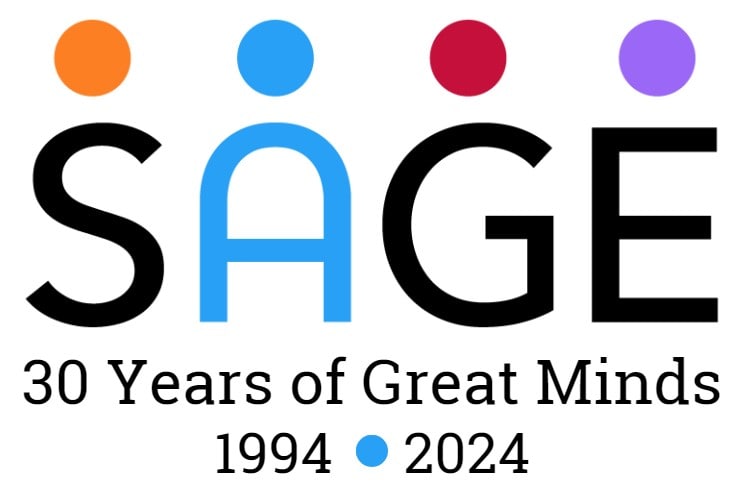Post-Occupancy Evaluations
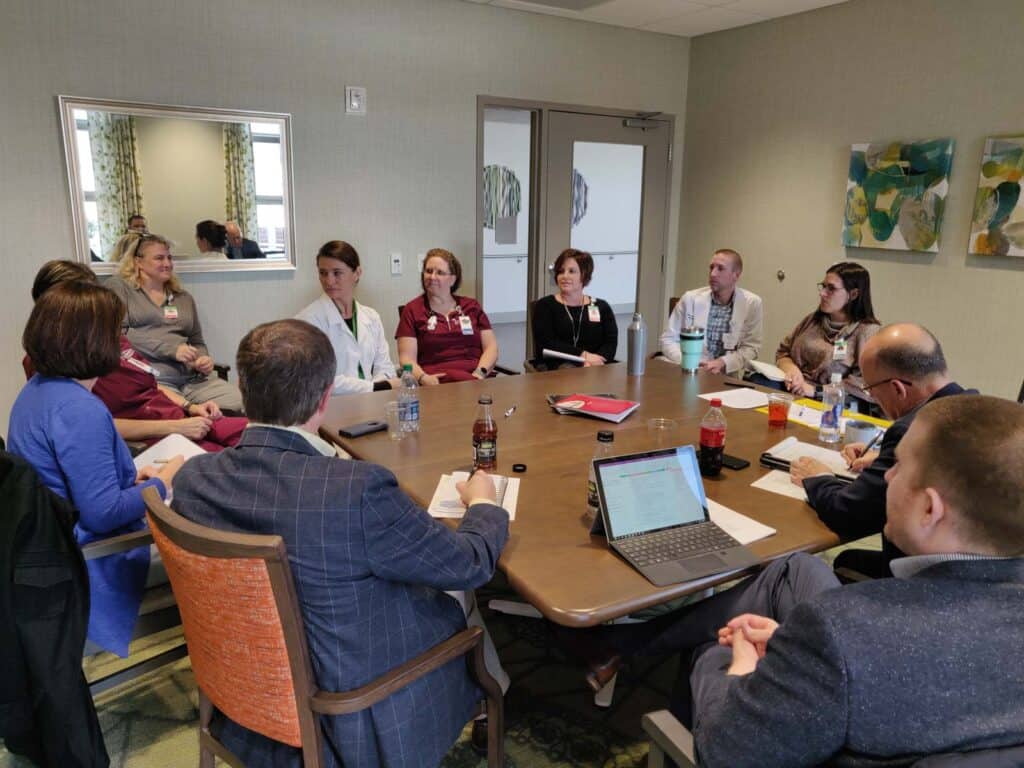
Since 1999, SAGE has conducted post-occupancy evaluations (POE) from coast to coast. The POE team spends a day looking at the host building or community setting from a multidisciplinary point of view.
The one-day evaluation involves looking at the setting through the lens of SAGE principles, and includes interviews with all levels of staff, residents, and family members to get to the heart of what is working and what needs improvement to help older adults be in the community longer and feel more comfortable.
The Process
Each year, SAGE leads this educational effort in many setting types including independent living, assisted living, skilled nursing, and hospice environments
The key to the SAGE POE is the multi-disciplinary perspective that the review team brings to the process. A POE team typically consists of the following key experts who are members of SAGE:
- Clinicians– Medical directors or directors of nursing
- Providers – Administration and staff
- Consumers – Residents and family members
- Architects – Involved in design for aging
- Interior Designers – Involved in design for aging
- Academicians/Researchers – University based or independent
- Specialty Consultants – Involved in design for aging issues
- Regulators – Government officials responsible for the creation and enforcement health care codes and standards
Reviewers spend one day touring the environment, speaking to administrative staff, direct care staff, designers, and residents. The review team then assembles a presentation to share at the annual Environments for Aging conference.
SAGE design principles are the foundation for conducting the POE. The review committee also uses SAGE POE guideline created in conjunction with the Institute on Aging and Environment at the University of Wisconsin, Milwaukee. This worksheet provides a loose framework for the evaluation.
The presentation is not aimed at rating the project in comparison with others, like a design competition. The focus of the POE presentation involves multiple objectives including:
- An identification of the successful outcomes that were achieved in light of the SAGE Design Principles and the owner’s goals and objectives
- A suggestion of the opportunities for improvement in the environment, again through the lens of the SAGE Design Principles
- A sharing of the “lessons learned” from the end users of the senior living environment
Interested in serving on a future POE team? Have a suggestion for a facility to review?
2024 POE
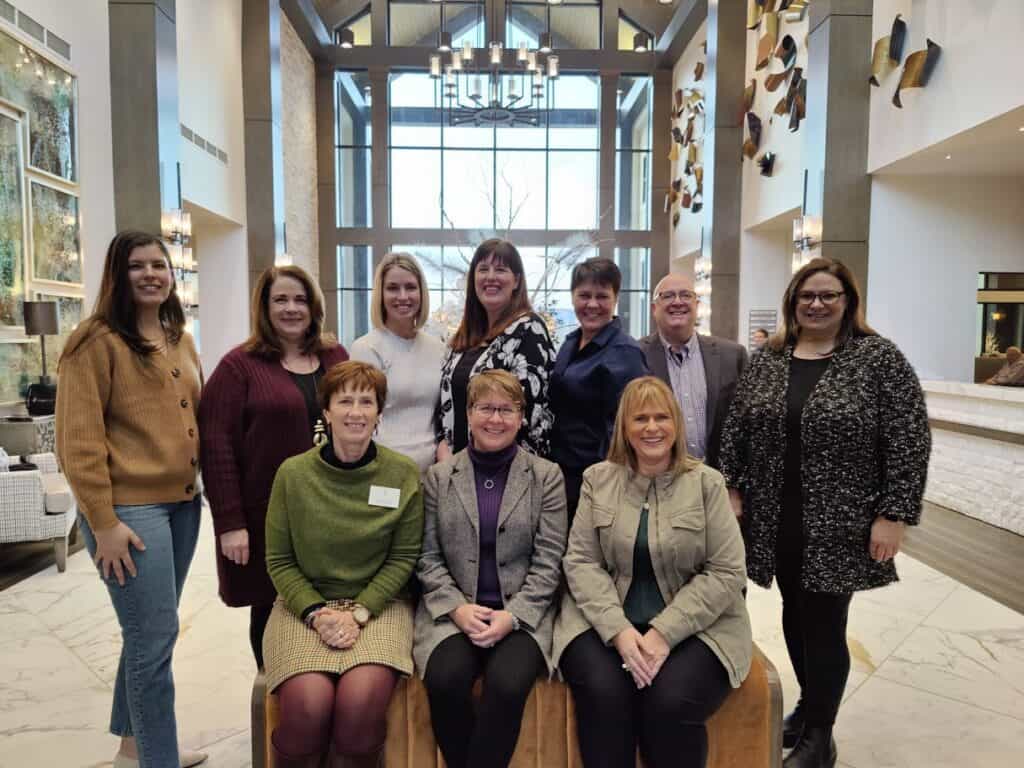
The Spires at Berry College was the Award of Merit winner in the 2021 Environments for Aging Design Showcase awards. Located on the campus of Berry College, the largest college campus in the world, the Spires is situated adjacent to a former limestone quarry – now a lake – that was classified as a brownfield. This community stands as a model for how intergenerational living can create thriving, dynamic communities. The strong connections between students and residents remains its most significant achievement.
2023 POE
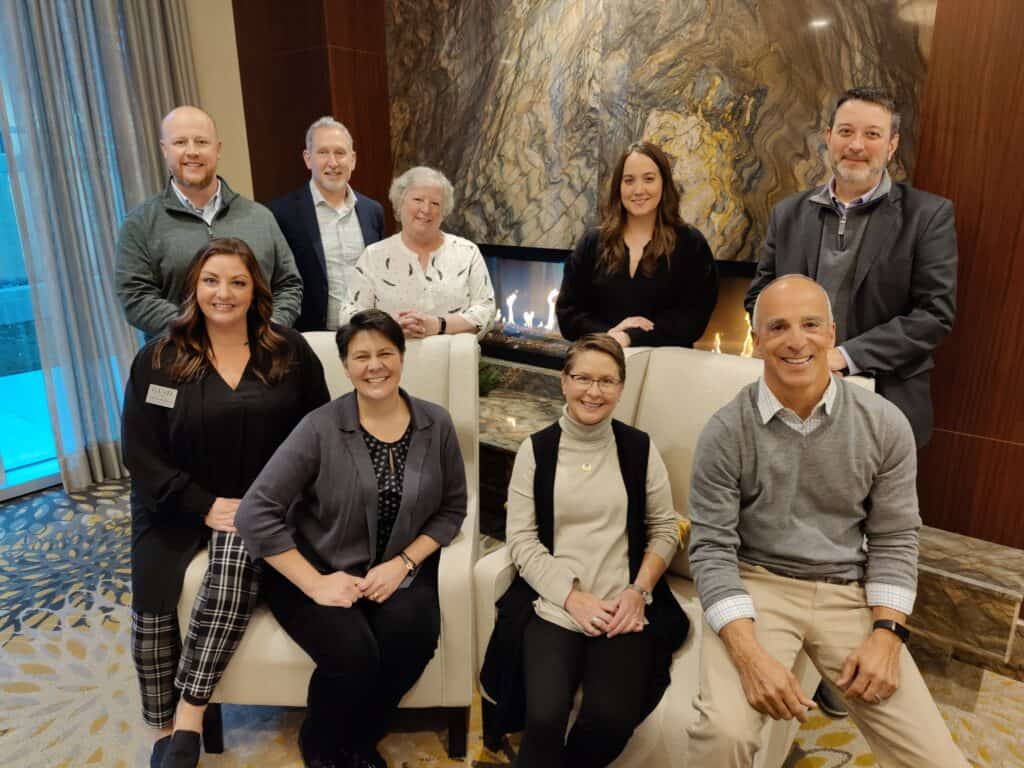
An Honorable Mention in the 2020 Environments for Aging Design Showcase, Ventana by Buckner is located in Dallas, Texas. Located on an oddly shaped 3.5 acre site—a leftover parcel out of a Large PUD for Lincoln Park– the design team overcame significant challenges to create an impressive, light-filled 12-story in the midst of the COVID pandemic. The strong leadership at both the community and Buckner provided the vision for what has become a vibrant community.
2023 POE sponsored by:
Past SAGE Post-Occupancy Evaluations
For many years, results of the POEs were presented at the annual Leading Age conference. More recently, SAGE has partnered with the Environments for Aging conference to present its findings.

2022: Brio of Johnston,
Johnston, Iowa
Brio of Johnston was the Award of Merit winner in the 2020 Environments for Aging Design Showcase awards. The building site is a former farm, located close to the heart of Johnston, Iowa; a suburb of Des Moines. The Owner wanted this building to feel like it was nestled into the adjacent neighborhood and to be welcoming to the greater community. It was also very important for Brio to be surrounded by all ages and not segregated. Of particular focus on this POE was the building’s acoustics, with a special acoustics supplement to the white paper available.
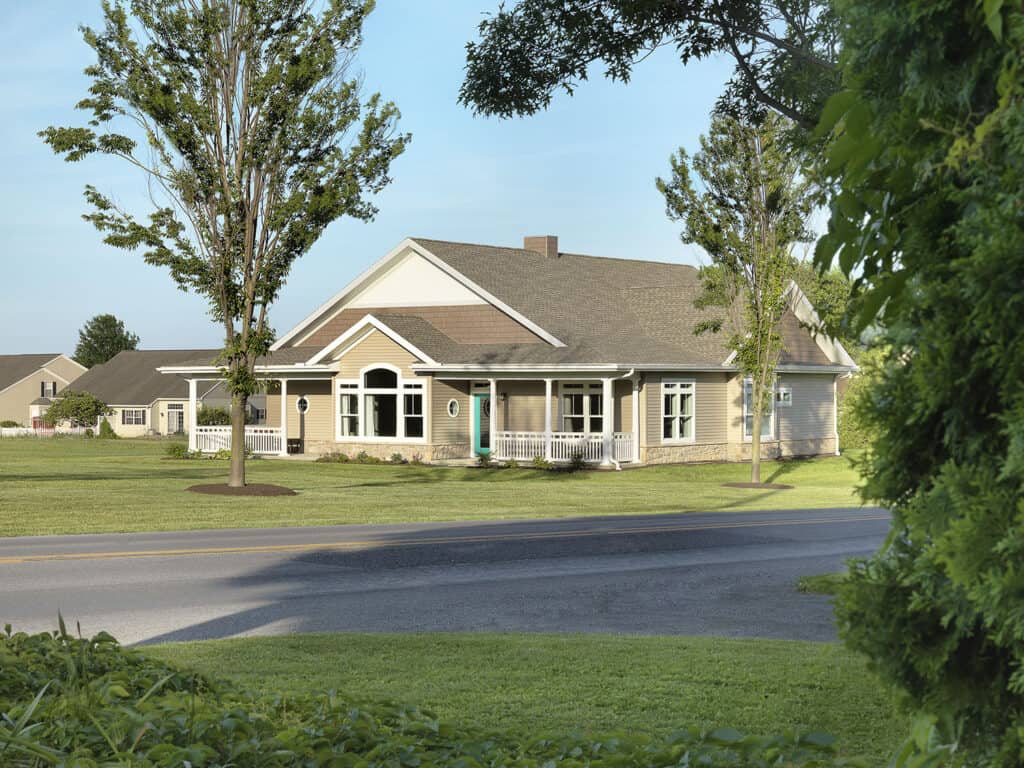
2021: Thistledown Cooperative Living House, Garden Spot Village
New Holland, Pennsylvania
This year SAGE was incredibly excited to sponsor our first student-directed POE. Kansas State University Interior design students from the College of Health and Human Sciences were led and trained by Dr. Migette Kaup. These students have been diligent in their research, process, evaluation, and reporting of their findings which Garden Spot Village will use to inform its next phase of Co-Living homes.
2021 POE sponsored by:
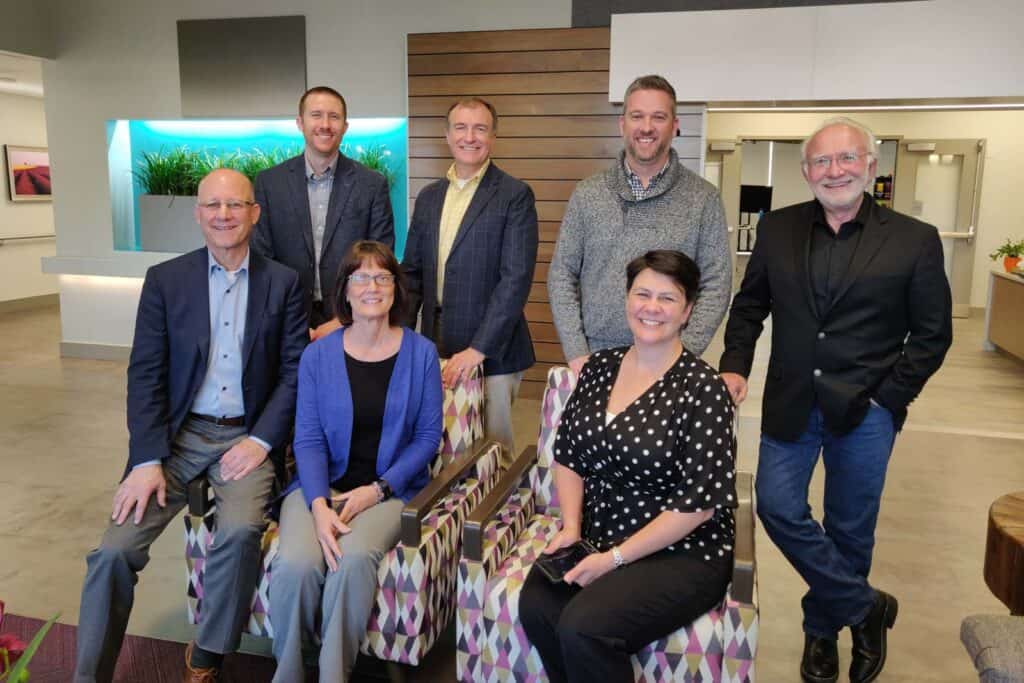
2020: Menno Haven Rehabilitation Center, Chambersburg, Pennsylvania
Menno Haven Rehabilitation Center in Chambersburg, Pennsylvania, was the site of the 2020 SAGE POE. The first WELL-certified skilled nursing building in the world, Menno Haven Rehabilitation Center focuses on whole-person healing. Instead of operating full kitchens in multiple locations on campus, the leadership and design team determined that it made the most sense to locate the new central kitchen in this new building.
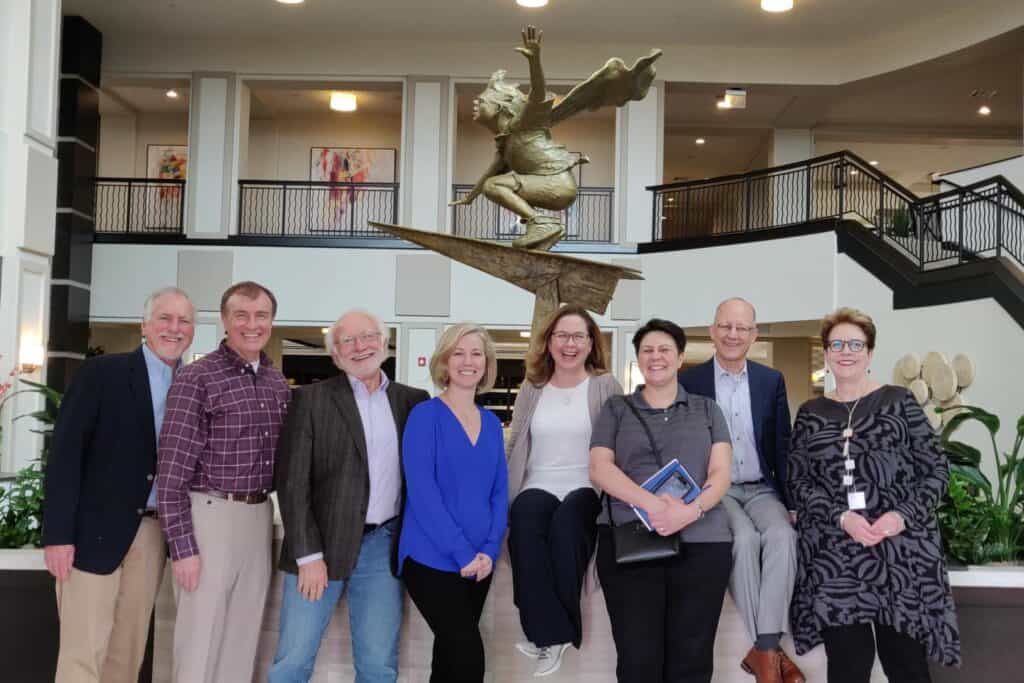
2019: LivGenerations Ahwatukee, Phoenix, Arizona
The 2019 SAGE POE was conducted at LivGenerations Ahwatukee in Phoenix, Arizona, a newly constructed independent/assisted living building designed to provide services for seniors desiring to age in place. Recognized for design excellence by the Environments for Aging Design Showcase, this project had specific design goals to enhance the experiences of residents and staff.
2019 POE sponsored by:
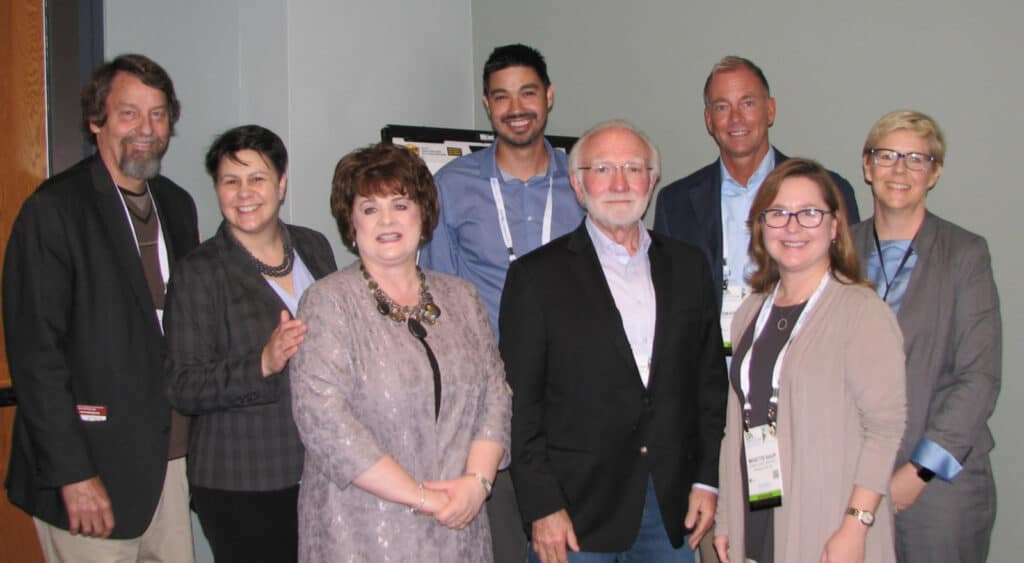
2018: The Cottage at Cypress Cove, Fort Myers, Florida
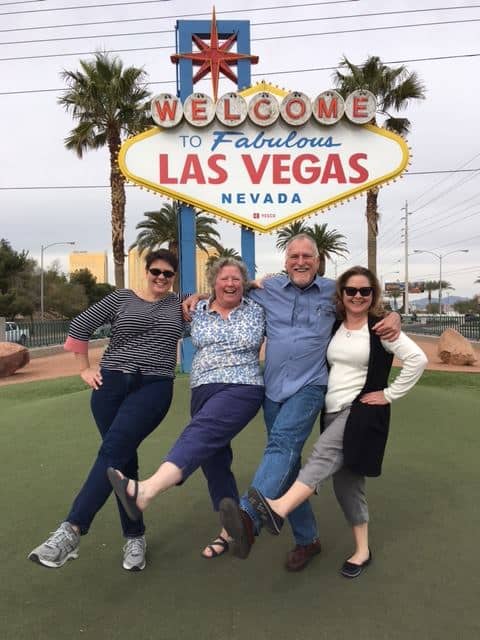
2017: City of Las Vegas
For the first time, instead of looking at a senior-care setting or building, the SAGE POE team evaluated the city of Las Vegas to determine how friendly it is for residents and visitors.
Of particular interest was the city’s accessibility, wayfinding, noise, signs, transportation, all the components of safety and security, and how easy is it for older adults to navigate around.
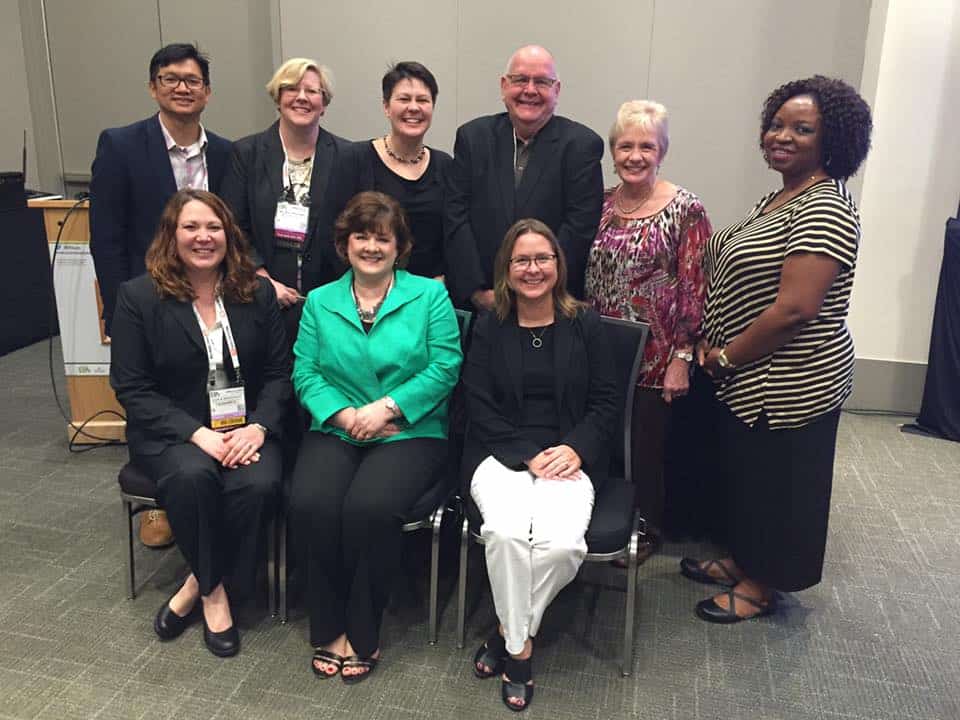
2016: The Harbor at Buckner Villas, Austin, Texas
Lessons to be learned from this household-based memory care community include how to use a challenging site that incorporates many amenities and thoughtful design elements.
